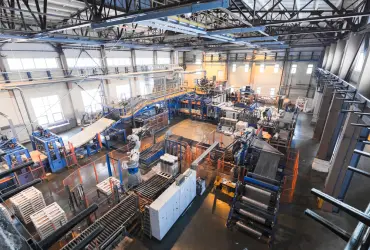Turn All Business Travel Into a Holiday
with a Team That Understands
What You Need
Upcoming Trade Shows in Sweden for Industrial Supplies, Subcontracting

Elmia Subcontractor 2026, Jönköping, Sweden
10 - 12 Nov 2026
Sweden’s industrial landscape has to adapt to rapidly fluctuating market trends and adopt as many technological advancements as its competitors. The contribution of industrial goods production to the nation’s GDP has sharply declined, with the manufacturing industry’s share of GDP halving since 1980. Currently, the production of industrial goods constitutes 19% of GDP and accounts for 16% of employment. This decline, however, does not signify a downturn but rather a shift towards a more knowledge-intensive and innovative industrial sector. This transformative stretch of time is also exerting force on Sweden’s industrial supplies and subcontracting industry.
Exports have played a crucial role in this transition. In 1980, exports accounted for 53% of total industrial output; today, that figure has risen to 73%. Businesses with low productivity have relocated to low-cost countries, allowing more specialized and high-value segments of the industry to expand within Sweden. This specialization has enabled better utilization of economies of scale and enhanced productivity. Despite a decline of 400,000 in the number of persons directly and indirectly employed in industrial goods production since 1980, production volumes have tripled. Despite the increase in production volumes, the share of industrial goods in GDP has dropped from 38% in 1980 to just under 19% today. This calculation includes indirect effects from industrial demand for goods and services from other parts of the economy. The setting for wage formation is also affected, as the economy adapts to these structural changes.
A notable example of this transformation is Ericsson’s announcement in 2016 to further unwind its volume production of certain products in Sweden. For many years, Ericsson has primarily manufactured products in countries like China, India, and Brazil, with production being largely automated and undertaken by subcontractors. Currently, only around 5,000 of Ericsson’s 116,000 employees work in the manufacture of products, highlighting the shift towards a globalized and automated production model.
GET A FREE QUOTE
Looking for a hotel accommodation for particular trade show or exhibition.
Send us a general enquiry and we will find the best options for you
Send us a general enquiry and we will find the best options for you